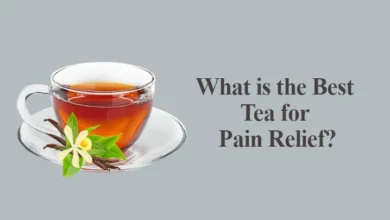8 Tips for Preventing Nursing Home Falls

Nursing home fall accidents maim, kill, and injure nursing home residents every single day. That being said, many of these falls are preventable. With this in mind, it’s essential to understand how nursing home falls can be prevented.
In this article, we will discuss some important tips for preventing nursing home falls. By implementing these eight strategies, nursing homes can reduce the risk of falls and promote a safe and comfortable environment for their residents.
Tips for Preventing Nursing Home Falls
With these eight tips, nursing homes can help cut down on nursing home falls:
1. A Tidy Space is Key
Many nursing home falls can be blamed on one thing: an unkempt living space. When a nursing home is filled with dirty spaces, poorly swept floors, tripping hazards, and other dangerous elements of an unkempt space, fall accidents become much more likely.
Clean living spaces will also help fight infections and other diseases for at-risk elderly residents. Keeping residents’ spaces clean, tidy, and easy to see will prevent them from falling and tripping.
2. Keep Things Lit
If your residents want to remain safe, your nursing home must be lit brightly and broadly. Otherwise, patients with vision problems will have a much harder time navigating their daily lives and will be more prone to tripping and falling.
Even a small fall can have significant health implications for the elderly. A broken hip, for example, actually has a high mortality rate in elderly people above the age of seventy, so keeping spaces properly lit can be a matter of life and death.
3. Promote Physical Health
The physical health and well-being of a nursing home’s residents are the responsibility of their staff members (and the residents themselves). Alongside daily medication and ensuring residents are healthy, staff members should do their best to promote physical health when possible.
Hosting exercise events and educating residents about improving and maintaining their physical health should be key. Otherwise, patients will become more brittle and unhealthy, which will, in turn, drastically increase the rate of fall accidents on the property.
4. Create an Environment of Trust
The more residents trust the staff at their nursing home, the safer and more secure a nursing home will become. Residents will feel more inclined to inform staff about potential fall hazards (and other safety issues) if an environment of trust is present after all.
If you suspect that your elderly loved one does not trust their nursing home’s staff, this could point to significant issues happening behind the scenes (including abuse and neglect). For this reason, you must stay up-to-date with your loved one’s opinion of their nursing home (and its staff).
5. Use Safety Devices
There are many different safety and accessibility devices that nursing home residents use every single day. Not only do these safety devices help their quality of life, but they help to prevent fall accidents as well. Walkers, wheelchairs, and other equipment in this category are particularly notable.
However, residents must know how to use this equipment, or fall accidents properly (and other health issues) can arise from improper usage.
This is another key responsibility of a nursing home’s staff that you should consider when assessing the quality of care a nursing home provides to your elderly loved one.
6. Proper Staffing Levels
It’s a little-known fact that many nursing homes around the country are suffering from understaffing issues. When a nursing home is understaffed, every resident suffers the consequences.
Not only does this ensure that facilities will not be as well-maintained as needed, but it will also remove essential safeguards against abuse (and fall accidents). Due to this, you should consider relocating your elderly loved one from any nursing home with a significant staffing issue in 2023.
7. Well-Maintained Equipment
Alongside having the right equipment to accommodate their residents, nursing home staff members must ensure the equipment they (and their residents) use is properly maintained.
When a piece of equipment (whether for medical care or accessibility) is not maintained correctly, it can cause disastrous results. Trip and fall accidents are more likely when this is the case, but other serious injuries, and even death, can also occur from improperly maintained nursing home equipment.
8. Provide Protective Gear
Protective gear can be anything from a wheelchair to non-slip slippers. If a nursing home ensures every resident has all the protective gear they need, fall accident rates will become much lower.
As a family member, you should also ensure that your elderly loved one has all the protective gear they need to stay safe and secure within their nursing home environment.
Doing so will help you feel at peace about your loved one’s quality of care, well-being, and happiness within their nursing home community.
Conclusion
In conclusion, it is essential to avoid falls in nursing homes in order to ensure the patients’ safety and wellbeing. By following the tips mentioned above, nursing homes can reduce the risk of falls and minimize the physical and emotional harm that falls can cause.





